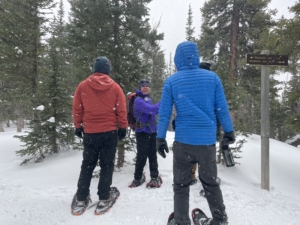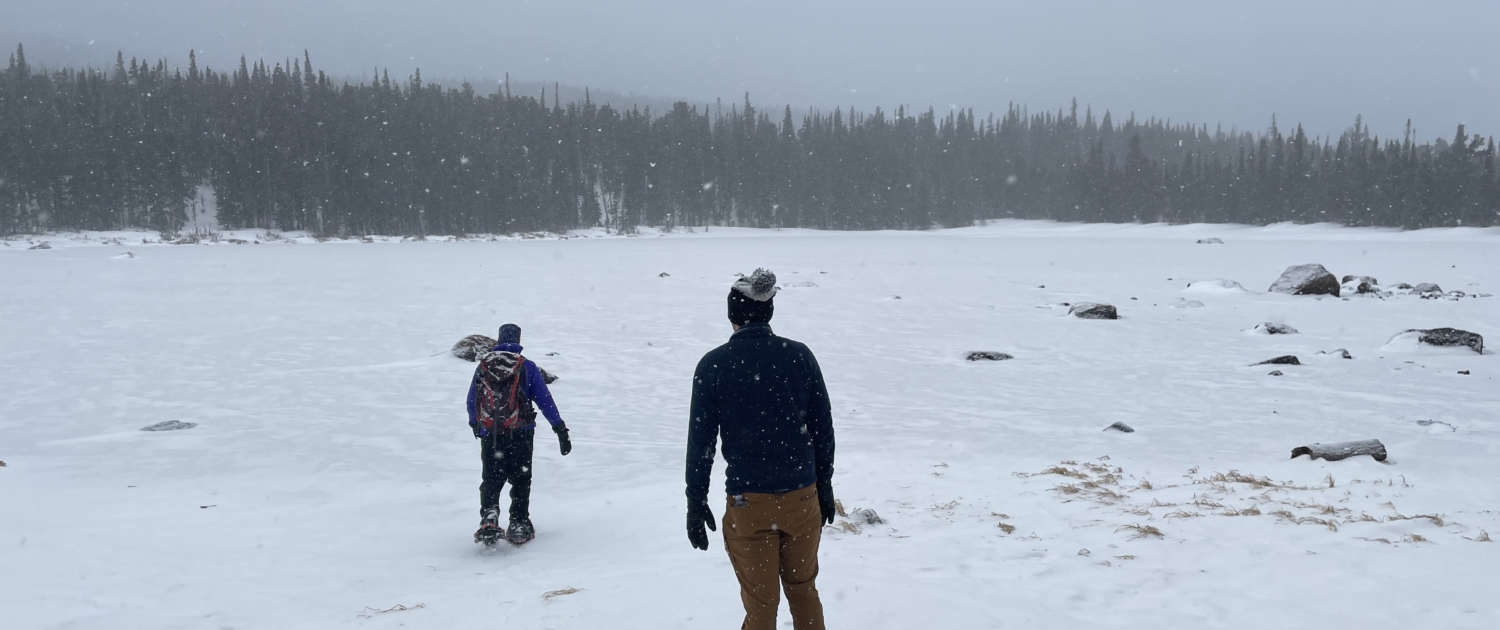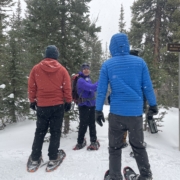Leaving the Comfort Zone Behind
 Like everybody else, people with mental health issues strive to live meaningful and satisfying lives. Colorado Recovery approaches mental healthcare based on a path of self-reliance through developed practiced skills. This non-institutionalized social recovery offers dynamic levels of care supported by an expert medical and clinical team, engaging patients in increasing community participation.
Like everybody else, people with mental health issues strive to live meaningful and satisfying lives. Colorado Recovery approaches mental healthcare based on a path of self-reliance through developed practiced skills. This non-institutionalized social recovery offers dynamic levels of care supported by an expert medical and clinical team, engaging patients in increasing community participation.
One important element of this approach is the great outdoors surrounding the Colorado Recovery campus in Boulder. During the winter months that includes snowshoeing excursions in the Rocky Mountains.
“It’s important to get people out of their comfort zone,” says outpatient and transitional living manager Terry Stiven. “Many of our clients have not been in these kinds of mountains before, so some of them get a little nervous on the car ride up the mountain. They wonder ‘What if I can’t do this?’ It’s a great opportunity to work on any anxiety or fears they may have.”
It’s not only the snowshoeing itself, clients learn to prepare and organize for the trip. It’s about getting out of the house and not only for an hour-long therapy session but pretty much for the whole day.
And then there’s the physical challenge. “Most have never done anything like this and wonder about getting tired too soon,” says Stiven. “If they start to have doubts, we challenge them to go a little farther and when they find that success, it gives them confidence for other challenges in life.”

Getting out there and taking a little risk creates a lot of self-esteem. Some clients have to overcome previous negative experiences. Stiven recently accompanied a person who had been in a car accident and didn’t really feel like driving up the mountain. “We did some calming breathing exercises and said ‘Let’s give it a try’ and they did and really enjoyed the excursion in the end.”
Another client also wasn’t sure he could do it but ended up being the most eager of the whole group and really loved it: the fresh mountain air and the gently falling snow felt good and provided a solid grounding.
“We drove for about 45 minutes up to an altitude of 10,000 feet in an area where you can overlook the continental divide and we followed a beautiful trail,” Stiven remembers. There was also the power of a shared experience, of people encouraging each other on the trail.
“It’s great to get out of traditional forms of therapy for a while and out into the wilderness,” says Stiven. “Any Colorado Recovery client at any level of care can join in, they just have to be willing to step outside the box.”
This kind of empowering endeavor is central to the Warner Model utilized at Colorado Recovery. “Treatment should include social rehabilitation,” wrote Dr. Warner in The Environment of Schizophrenia. “People with schizophrenia usually need help to improve their functioning in the community. This can include training in basic living skills; assistance with a host of day-to-day tasks; and job training, job placement, and work support.”
And the self-esteem necessary to succeed in the wider community can be strengthened on a wilderness trail in mid-winter. At Colorado Recovery it is our mission to help adults with serious mental health issues stabilize their illness, minimize symptoms, improve functioning and enhance each person’s social inclusion, quality of life, and sense of meaning in life.
If you have questions about our recovery model or our services to treat schizophrenia, bipolar disorder, and similar mental illnesses, call us at 720-218-4068 to discuss treatment options for you or the person you would like to help.





